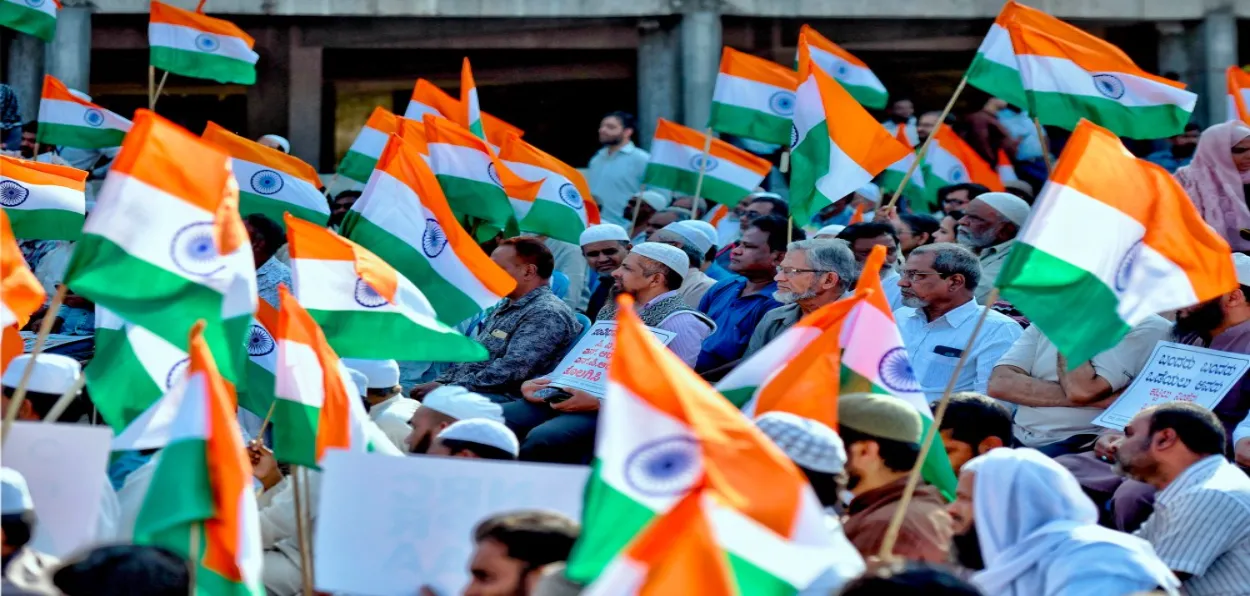
Sameer Shaikh/ Pune
India is known for its diversity of religions and customs. But the law should be the same for all citizens. That is why Article 44 of the Indian Constitution recommends the introduction of a uniform civil code. This has caused much debate and controversy in India. While most civil and criminal laws are the same throughout the country, personal laws remain different for each religion. These personal laws cover marriage, divorce, adoption, and inheritance and are unique to each religion. For example, Muslims have their own set of laws, which are set out in the Muslim Personal or Shariat Application Act 1936.
Sharia is a set of customs, rules, and traditions followed by many Muslims. Other laws are common to all Indians, except personal law. Unfortunately, due to a lack of knowledge or unfounded fear, many Muslims mistakenly believe that the Personal Law of 1937 is identical to the Shari'ah and is unchangeable. Over time, however, both Muslim-majority democracies and Islamic Shari'ah-based states have made changes to Islamic law.
Reform of Islamic law remains a daunting and contentious issue, even in Islamic countries. The difficult task of maintaining a balance between Sharia, Islamic religious law, the modern legal system, and human rights is a challenge. Sharia is derived primarily from the Qur'an, the Sunnah (the sayings and practices of the Prophet Muhammad), and fiqh (the interpretation of Sharia based on the understanding of Muslim scholars). It contains not only legal rules but also moral and spiritual principles for Muslims. There is a common assumption that Sharia is unchangeable, but in fact, it is not divine, immutable, or universal. It is an evolving tradition. It has been modified according to geographical and social conditions.
In many Islamic countries, Sharia is based on interpretations of fiqh and can vary widely in scope, subject matter, and implementation. Some countries, such as Saudi Arabia and Iran, require Sharia to be the sole source of law, while others, such as Egypt and Pakistan, have a mixed system of civil and Sharia law. On the other hand, Muslim-majority countries such as Turkey and Tunisia have secular legal systems with minimal Sharia.
In recent years, there has been a great deal of reform of family law in Islamic countries. These reforms often aim to address issues such as women's rights, child marriage, polygamy, divorce rights, and equal inheritance. However, these reforms have met with strong opposition from conservative or fundamentalist groups who argue that they undermine the authority of Sharia and violate the principles of Islam. Nevertheless, the process of reforming family law is continuing, with measures such as giving women more rights in marriage, divorce, inheritance, adoption, and protection from domestic violence. These reforms ensure that Sharia law is upheld while promoting gender equality and social justice. Here are some examples of such reforms.
Pakistan, India's neighbour, has implemented various reforms to the Muslim Family Law Ordinance of 1961, such as requiring the written consent of an existing wife for polygamy and establishing family courts to facilitate judicial divorce and resolve family disputes. Despite political instability, the coming to power of a radical government has not reversed these reforms, although their progress has slowed. Religious parties have challenged the reforms on constitutional grounds and put pressure on the courts.
In 2000, Egypt, the largest of the Arab states, reformed its Islamic law to give women the right to unilateral divorce (khula) and retain their financial rights. The minimum age for marriage has been raised to eighteen for both men and women, with custody of children remaining with the woman until the age of 15. Although some religious scholars and activists saw the reforms as a violation of Sharia and an 'empowerment of women at the expense of men', the system has persisted in reforming the Muslim Personal Law.
Tunisia is a predominantly Muslim country but has a democratic system. The 1956 Personal Code abolished polygamy and provided for divorce through the courts for both husband and wife. It also gave women the same inheritance rights as men and equal legal status. Child marriage and female genital mutilation are banned in Tunisia, and these reforms have been widely praised as progressive and compatible with Islam. However, some Islamist groups have opposed the changes, arguing that Sharia should be the sole basis of law. Despite the opposition, Tunisia has continued with its reform program.
ALSO READ: Saudi documenting Hadith to stop misuse by Islamic radicals, terrorists
Sharia is not fixed or uniform, and there are many examples of this. Muslims in Islamic countries are constantly reforming and developing their laws, making them diverse and ever-changing. This process has been shaped by historical, political, social, and religious contexts. Sharia has been applied to modern laws, but efforts are being made to ensure that the changes are beneficial. Therefore, Indian Muslims should be open to the idea that Sharia is fluid, just like other Islamic nations, and efforts should be made to create and strengthen movements like the Muslim Satyashodak Mandal and the Bharatiya Mahila Andolan to begin the reform of Muslim personal law that has been pending for over a century.
